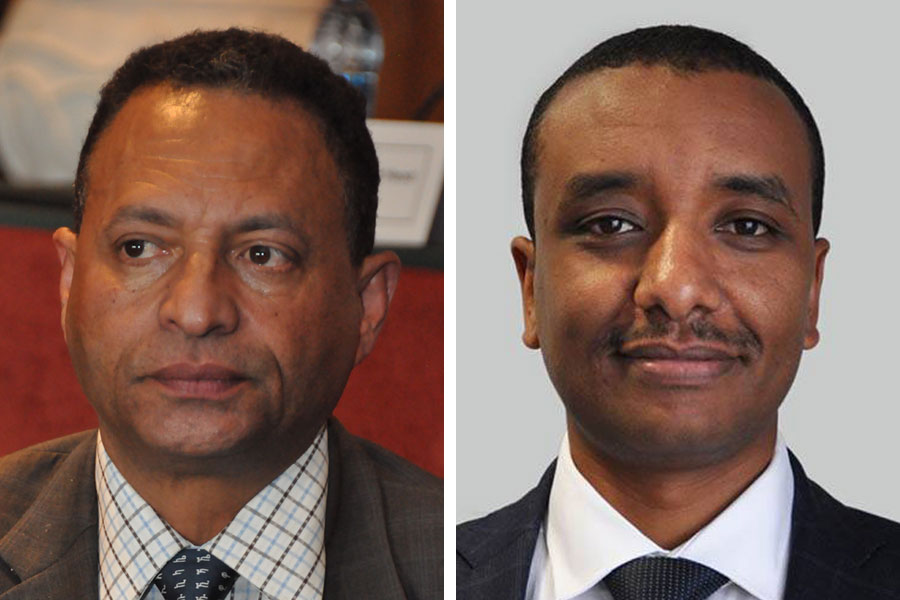
Fortune News | Sep 29,2024
Apr 25 , 2020
By Asseged G. Medhin
Predictably, COVID-19 has had a knock-on effect on service providers across the world. Those in the insurance industry have been no exception.
World-class insurers have been devising a strategy to protect their businesses. The most common form of disaster recovery programmes and risk road maps though have become meaningless in the eyes of customers. This is especially the case for many airlines that failed to refund beforehand and kept on flying due to conflicting advice given by governments as to whether people should travel or not.
The need for cover and the issue of practical pricing creates questions regarding insurers’ reputations. Policyholders believe and always maintain the principle of “utmost good faith” during acceptance of claims, while insurers occasionally refer to exclusions in their books, even for corporate clients. This practice is resulting in a lack of focus on the design of the product itself. When a pandemic such as COVID-19 occurs, policyholders are surprised to find that they are not covered by their insurance.
This situation arises largely due to customers not fully understanding insurance coverage, which is partly the fault of the insurers for using long and complicated terms and conditions. The way the international media sees it, insurers are unfairly treating their customers during this harsh time.
The long and short of it is that insurers of the 21st century work in a marketplace in which people buy whichever insurance policy is cheapest. Unsurprisingly, cheap policies rarely cover unexpected or unusual events - like global pandemics. It was a scenario that could have perhaps been salvaged had insurers designed tailor-made policies through intensive negotiation instead of blanket tariff and rating approaches.
During the pandemic there has been a great deal of confusion as insurers have tried to grapple with an increased volume of claims and customer queries, as well as a chorus of criticism from journalists and social media users. This is exacerbating the situation, resulting in long wait times for responses and even further customer dissatisfaction.
Things will dramatically change globally following COVID-19 - there are enormous risks to the insurance businesses on a scale we have rarely seen before. Even world-class reinsurers, such as Munich Re, could fail as international trade, events, flights, games, entertainment industries, hotels and restaurants fail or cancel, and organisers and owners come asking for claims.
It is almost certain that we will see insurance businesses fail globally and quite possibly in significant numbers. The global pandemic may bring a more stringent approach, especially as policyholders come to expect more tailor-made policies due to how they treat risks such as pandemics. This will affect the industry all the way to the reinsurers.
Things are dramatically changing, and we should strive to introduce a pragmatic response to the emerging risk in the eyes of insurers. Let us think outside the box to develop a means to secure the financial burden of policyholders and insurers as well, and this will have to be led by the nation’s only re-insurer, Ethio-Re.
Currently, paying out on policies will be a huge hit to insurers and for reinsurers when the cost is added to their other exposure. That could put them in serious jeopardy. This impact may create de-marketing for both composite and general insurers and Ethio-Re.
The most worrying of these may be the volume of payouts on existing travel insurance policies being far beyond what was expected. As if this was not enough, the investments insurers rely on to give them funds to pay such claims are in free fall.
Additionally, giant global businesses are failing, with airlines looking to be the earliest casualties and hospitality chains likely to follow swiftly. Firms of this size are more likely to have comprehensive coverage. Having to pay out on any policies that include contagious disease will further add to the burden faced by the insurance industry. This will significantly affect reinsurers, most of which have connections to the Ethiopian insurance market.
Despite the risk, insurers and reinsurers seem to have taken little action in developing a global risk road map. This has been despite the increasing recurrence of natural disasters, including forest fires, floods and even locust invasions. The primary role of insurers, and mainly reinsurers, should be to develop a global risk road map, including mitigation factors and advising governments to design their disaster recovery programmes.
It is almost certain that, as we go forward, the insurance industry will suffer severely, the impact of which will be more exclusions at the expense of policyholders. This will create a catch-22 at a time when customers expect insurance packages at a reduced price, with wider coverage and lower deductibles.
We should reconsider our existing manner of doing business and craft comprehensive risk road map strategies that will mitigate pandemics such as COVID-19 and the increasing number of natural disasters.
PUBLISHED ON
Apr 25,2020 [ VOL
21 , NO
1043]


Fortune News | Sep 29,2024

Fortune News | Dec 30,2023

Viewpoints | Aug 03,2024

Viewpoints | Nov 09,2024

Fortune News | Feb 15,2020

Fortune News | Aug 17,2019

Fortune News | Apr 26,2019

Radar | Mar 11,2024

Fortune News | Aug 07,2021

View From Arada | Dec 24,2022

My Opinion | 131507 Views | Aug 14,2021

My Opinion | 127863 Views | Aug 21,2021

My Opinion | 125841 Views | Sep 10,2021

My Opinion | 123471 Views | Aug 07,2021

Dec 22 , 2024 . By TIZITA SHEWAFERAW
Charged with transforming colossal state-owned enterprises into modern and competitiv...

Aug 18 , 2024 . By AKSAH ITALO
Although predictable Yonas Zerihun's job in the ride-hailing service is not immune to...

Jul 28 , 2024 . By TIZITA SHEWAFERAW
Unhabitual, perhaps too many, Samuel Gebreyohannes, 38, used to occasionally enjoy a couple of beers at breakfast. However, he recently swit...

Jul 13 , 2024 . By AKSAH ITALO
Investors who rely on tractors, trucks, and field vehicles for commuting, transporting commodities, and f...

Jun 28 , 2025
Meseret Damtie, the assertive auditor general, has never been shy about naming names...

Jun 21 , 2025
A well-worn adage says, “Budget is not destiny, but it is direction.” Examining t...

Jun 14 , 2025
Yet again, the Horn of Africa is bracing for trouble. A region already frayed by wars...

Jun 7 , 2025
Few promises shine brighter in Addis Abeba than the pledge of a roof for every family...

Jun 29 , 2025
Addis Abeba's first rains have coincided with a sweeping rise in private school tuition, prompting the city's education...

Jun 29 , 2025 . By BEZAWIT HULUAGER
Central Bank Governor Mamo Mihretu claimed a bold reconfiguration of monetary policy...

Jun 29 , 2025 . By BEZAWIT HULUAGER
The federal government is betting on a sweeping overhaul of the driver licensing regi...

Jun 29 , 2025 . By NAHOM AYELE
Gadaa Bank has listed 1.2 million shares on the Ethiopian Securities Exchange (ESX),...